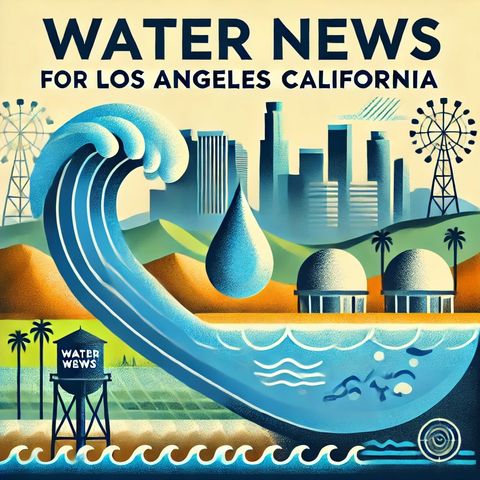The Precarious Quest for Water in Las Vegas: Navigating Drought, Negotiations, and an Uncertain Future

Descarga y escucha en cualquier lugar
Descarga tus episodios favoritos y disfrútalos, ¡dondequiera que estés! Regístrate o inicia sesión ahora para acceder a la escucha sin conexión.
The Precarious Quest for Water in Las Vegas: Navigating Drought, Negotiations, and an Uncertain Future
Esta transcripción es generada automáticamente. Ten en cuenta que no se garantiza una precisión absoluta.
Descripción
In the arid landscape of Las Vegas, Nevada, the struggle for water is as old as the city itself, and recent developments have brought this issue to the forefront once...
mostra másAt the heart of the matter is the Colorado River, Southern Nevada’s primary source of water. The river is facing historic drought, and negotiations for its post-2026 operating guidelines are stalled. The U.S. Bureau of Reclamation recently released five potential paths forward for these negotiations, but the clarity of these alternatives has been met with skepticism. Kyle Roerink, executive director of the Great Basin Water Network, described the situation as "clear as mud," suggesting that the announcement is more about headlines than substantive policy discussion[1][4].
The main point of contention is between the Upper Basin states (Colorado, Utah, New Mexico, and Wyoming) and the Lower Basin states (Nevada, California, and Arizona). The Upper Basin argues it already takes too many water cuts due to its reliance on snowpack, while the Lower Basin is pushing for smaller reservoirs in the Upper Basin to be included in discussions about water usage cuts. This standoff is encapsulated in the "Basin Hybrid" alternative, which attempts to find a middle ground but does not take a clear side[1].
Native American tribes have also been brought into the negotiations for the first time, with proposals that include accounting for undeveloped tribal water rights, though details on this are sparse[1].
Locally, the Southern Nevada Water Authority is grappling with other water-related issues. The board is currently delaying a decision on a policy that would allow waivers for homeowners seeking to install septic tanks, a move that could have implications for groundwater quality and overall water management[2].
In an effort to reduce water usage, Nevada is set to implement Assembly Bill 356 on January 1, which prohibits the watering of nonfunctional decorative grass. This measure aims to conserve water in a region where every drop counts[5].
As the region prepares for the Colorado River Water Users Association conference in early December, where all seven state negotiators will convene in Las Vegas, the future of water in Southern Nevada remains uncertain. With the president-elect yet to name a new Reclamation commissioner, the path forward is fraught with challenges and unanswered questions.
In a city built on the desert sands, the quest for sustainable water solutions is an ongoing battle. As Las Vegas looks to the future, it must navigate the intricate web of state and federal negotiations, local policies, and environmental realities to ensure a secure water supply for its growing population.
Información
| Autor | QP-5 |
| Organización | William Corbin |
| Página web | - |
| Etiquetas |
Copyright 2024 - Spreaker Inc. an iHeartMedia Company

Comentarios